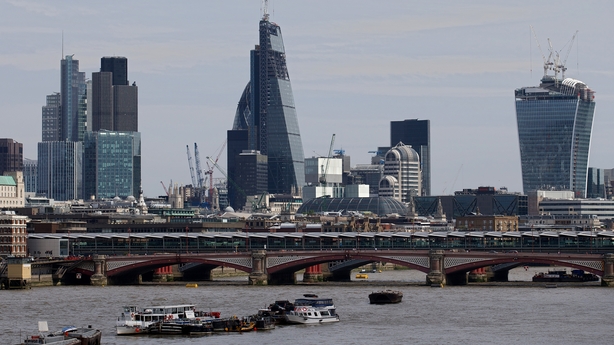Donald Trump's presidency is likely to create bigger uncertainty for the European Union than Britain's decision to leave the bloc, Britain's finance minister Philip Hammond said today.
"Brexit has introduced uncertainty. I think the change of administration in the US has introduced an even bigger piece of uncertainty for the European Union," Hammond said.
He made his comments in a panel discussion about the EU in the Swiss resort of Davos.
Hammond, a former UK foreign minister, said EU countries varied widely in how big a security threat they saw from Russia.
"Anything that changes the settled status quo of a Europe that lives with Russia as a neighbour, but lives under a protective US security umbrella as it does will play into the dynamics of the European Union," Hammond said.
Trump has expressed his admiration of Russian president Vladimir Putin, and raised concern about how countries share the cost of providing security via the NATO alliance.
Mr Hammond also said that interim arrangements for Britain's exit from the EU will be put in place if discussions are making good progress but "haven't quite got there" within two years.
He said Britain has reinvented itself before and will do again if the country faces the "catastrophe" of being closed off from EU markets.
Preferential migration arrangements "could" form part of the Brexit negotiations, the UK finance minister said.
"That could be a subject for the negotiations," he said. "What we have said clearly is that we can't accept the principle of free movement."
Mr Hammond said quitting within two years was a "political necessity" and the broad principles can be agreed in the time scale if there is the political will in Brussels.
"If we are making good progress but haven't quite got there we will simply agree that Britain will leave the European Union and we will agree some interim arrangements while we complete the discussion," he stated.
"But we think it can be done in two years if there is a political will on both sides to reach agreement on our exit and at least agreement on the broad principles of the end state that will exist between the UK and the European Union."
Mr Hammond said that Britain would "see some more" inflation this year in response to Brexit.
"If we serve the notice in the end of March 2017 we will leave the European Union end of March 2019," he added.
"That's effectively a political necessity in terms of the UK political situation and it's the legal position of the treaties. But we have to face the fact that there are many transitions that will be involved, business transitions, governmental transitions.
"If we change our customs arrangements we will need significant new infrastructure at the borders between the European Union and the UK. If we have different migration arrangements we will need significant new IT systems. These cannot be built and deployed in a few months, they are going to take years in some cases."
The Chancellor insisted he "didn't issue any threats" to the EU over turning the UK into a low tax centre if it fails to agree a good exit deal.
"It shouldn't be a surprise for anyone to hear that our first duty as an elected government is to protect the living standards of our people and that means the competitiveness of our economy," he told the Davos gathering.
"And, if we were to be, by some catastrophe, closed off from those markets we would have to reinvent ourselves. We would have to find another model, another way to earn our living, to remain competitive in the world.

"I just want to send out a clear message that we've reinvented ourselves before. The City of London now looks radically different to the City of London ... in the 1970s. We can reinvent ourselves, we can reinvent our institutions and we will do so if we have to but our clear preference is to remain in that mainstream."
Mr Hammond also said today that a post-Brexit Britain will keep its doors open to skilled foreigners who attend the best universities.
He made his assurance at a World Economic Forum panel in Davos, after he was confronted by an Oxford University professor about the potential fallout of Britain's divorce from the EU on research and academia.
"The political debate in the UK around migration is not about computer scientists, academics and brain surgeons, it's about the other end of the economic spectrum," the chancellor of the exchequer said.
Brexit will likely deprive British academics of EU research funds and make entry into Britain's universities a more cumbersome process for Europeans.
But Hammond said the brightest and the best would always be welcome.
"What we have had to do is clamp down on people coming, graduating from frankly low-quality institutions and then taking non-graduate level jobs," he said.
"Anyone with a degree from Oxford and who has a graduate-level job has the right to remain in the UK," said Hammond, himself an Oxford graduate.
Hammond's comments came a day after British Prime Minister Theresa May spoke in Davos in an effort to persuade top executives and opinion-makers that Britain was still open for business despite the Brexit vote of last June.
On Tuesday, May said Britain would quit the EU's common market but insisted in her Davos speech that the country would open up to the world as a whole.
Hammond told the panel: "There might be a few people in the UK whose vision is a closed economy where migrants don't come in, but that is absolutely not the majority view."

